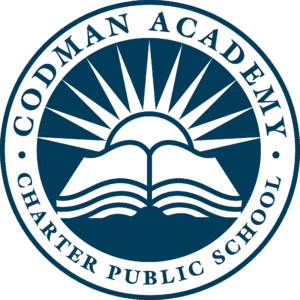Mission
Our mission is to provide an outstanding, transformative education to prepare students for success in college, further education and beyond.
Vision
We educate the whole student: mind, body, and character. With the city and world as our classroom, we build a school community rich in rigorous academics and daily experiences of discovery. We continue to support our alumni in realizing their potential after graduation.
Core Values
Our core values are expressed in EL Education’s ten design principles, which are drawn from the work of Outward Bound’s founder Kurt Hahn, Eleanor Duckworth and other educational leaders. Learning is an expedition into the unknown. Expeditions draw together personal experience and intellectual growth to promote self-discovery and construct knowledge. We believe that adults should guide students along this journey with care, compassion, and respect for their diverse learning styles, backgrounds, and needs. Addressing individual differences profoundly increases the potential for learning and creativity of each student. Given fundamental levels of health, safety, and love, all people can and want to learn. We believe expeditionary learning encourages the natural passion to learn and is a powerful method for developing the curiosity, skills, knowledge, and courage needed to imagine a better world and work toward realizing it.
The Ten Principles Are:
- THE PRIMACY OF SELF-DISCOVERY
Learning happens best with emotion, challenge and the requisite support. People discover their abilities, values, passions, and responsibilities in situations that offer adventure and the unexpected. In EL Education schools, students undertake tasks that require perseverance, fitness, craftsmanship, imagination, self-discipline, and significant achievement. A teacher’s primary task is to help students overcome their fears and discover they can do more than they think they can. - THE HAVING OF WONDERFUL IDEAS
Teaching in EL Education schools fosters curiosity about the world by creating learning situations that provide something important to think about, time to experiment, and time to make sense of what is observed. - THE RESPONSIBILITY FOR LEARNING
Learning is both a personal process of discovery and a social activity. Everyone learns both individually and as part of a group. Every aspect of an EL Education school encourages both children and adults to become increasingly responsible for directing their own personal and collective learning. - EMPATHY AND CARING
Learning is fostered best in communities where students’ and teachers’ ideas are respected and where there is mutual trust. Learning groups are small in EL Education schools, with a caring adult looking after the progress and acting as an advocate for each child. Older students mentor younger ones, and students feel physically and emotionally safe. - SUCCESS AND FAILURE
All students need to be successful if they are to build the confidence and capacity to take risks and meet increasingly difficult challenges. But it is also important for students to learn from their failures, to persevere when things are hard, and to learn to turn disabilities into opportunities. - COLLABORATION AND COMPETITION
Individual development and group development are integrated so that the value of friendship, trust, and group action is clear. Students are encouraged to compete not against each other, but with their own personal best and with rigorous standards of excellence. - DIVERSITY AND INCLUSION
Both diversity and inclusion increase the richness of ideas, creative power, problem-solving ability, and respect for others. In EL Education schools, students investigate and value their different histories and talents as well as those of other communities and cultures. Schools and learning groups are heterogeneous. - THE NATURAL WORLD
A direct and respectful relationship with the natural world refreshes the human spirit and teaches the important ideas of recurring cycles and cause and effect. Students learn to become stewards of the earth and of future generations. - SOLITUDE AND REFLECTION
Students and teachers need time alone to explore their own thoughts, make their own connections, and create their own ideas. They also need time to exchange their reflections with other students and with adults. - SERVICE AND COMPASSION
We are crew, not passengers. Students and teachers are strengthened by acts of consequential service to others, and one of an EL Education school’s primary functions is to prepare students with the attitudes and skills to learn from and be of service.
